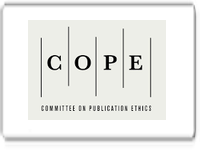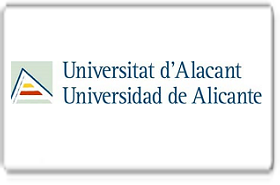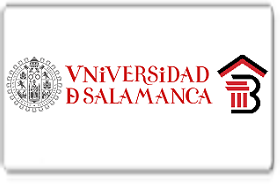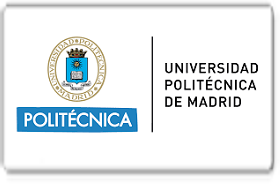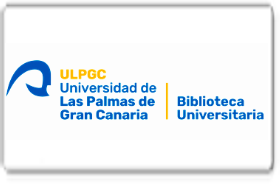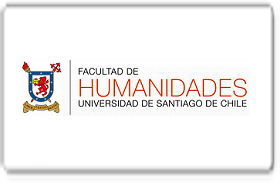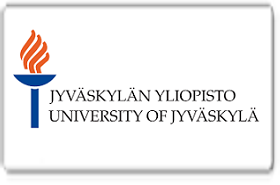Implicación de la disbiosis intestinal en la obesidad.
DOI:
https://doi.org/10.56048/MQR20225.7.2.2023.1215-1240Palabras clave:
Disbiosis, intestino, microbiota intestinal, obesidadResumen
La microbiota intestinal regula muchos procesos fisiológicos a través de interacciones con el huésped, como la digestión de los alimentos, la absorción y el metabolismo de nutrientes, la síntesis de vitaminas y ácidos biliares, así como prevención de la propagación de microorganismos patógenos e incluso regulación de la expresión inmunológica y génica del huésped. La alteración de estos procesos a causa de la disbiosis intestinal podría estar implicado en la fisiopatología de la Obesidad. El equilibro entre la proporción Firmicutes / Bacteroidetes y una baja cantidad de Proteobacteria se ha asociado con una microbiota intestinal saludable. Prevotella,Veillonella, Blautia , Lachnoclostridium, Estreptococo, Faecalitalea, Desulfovibrio, Escherichia. Proteus. Shiguella y Fusobacterium se asociaron a la obesidad. Los estudios han revelado como causas de disbiosis intestinal a diversos factores ambientales como el exceso consumo de alimentos grasos y azucares o la exposición a factores estresantes, sin embargo también existe un importante componente genético hereditario que predispone en el desarrollo del microbioma intestinal, llegando a la conclusión que la disbiosis intestinal podría ser una huella tanto del medio ambiente como del material genético hereditario y predisponer a generaciones futuras a estas alteraciones metabólicas. Los microbianos asociados a la reducción de peso pueden tener potencial terapéutico para la obesidad y las enfermedades metabólicas entre los cuales tenemos A. muciniphila, las, Alistipes, Bifidobacterium, Faecalibacterium y Roseburia. La evaluación de biomarcadores universales de la microbiota intestinal en obesidad se puede aplicar para la predicción temprana y los objetivos potenciales para los tratamientos adyuvantes de la obesidad.
Descargas
Métricas
Cited
DOI: 10.56048![]()
Citas
Abenavoli, L., Scarpellini, E., Colica, C., Boccuto, L., Salehi, B., Sharifi-Rad, J., Aiello, V., Romano, B., De Lorenzo, A., Izzo, A. A., & Capasso, R. (2019). Gut microbiota and obesity: A role for probiotics. In Nutrients (Vol. 11, Issue 11). MDPI AG. https://doi.org/10.3390/nu11112690
Amabebe, E., Robert, F. O., Agbalalah, T., & Orubu, E. S. F. (2020). Microbial dysbiosis-induced obesity: Role of gut microbiota in homoeostasis of energy metabolism. British Journal of Nutrition, 123(10), 1127–1137. https://doi.org/10.1017/S0007114520000380
Aron-Wisnewsky, J., Vigliotti, C., Witjes, J., Le, P., Holleboom, A. G., Verheij, J., Nieuwdorp, M., & Clément, K. (2020). Gut microbiota and human NAFLD: disentangling microbial signatures from metabolic disorders. In Nature Reviews Gastroenterology and Hepatology (Vol. 17, Issue 5, pp. 279–297). Nature Research. https://doi.org/10.1038/s41575-020-0269-9
Aron-Wisnewsky, J., Warmbrunn, M. V., Nieuwdorp, M., & Clément, K. (2021). Metabolism and Metabolic Disorders and the Microbiome: The Intestinal Microbiota Associated With Obesity, Lipid Metabolism, and Metabolic Health—Pathophysiology and Therapeutic Strategies. Gastroenterology, 160(2), 573–599. https://doi.org/10.1053/J.GASTRO.2020.10.057
Asadi, A., Shadab Mehr, N., Mohamadi, M. H., Shokri, F., Heidary, M., Sadeghifard, N., & Khoshnood, S. (2022). Obesity and gut-microbiota-brain axis: A narrative review. Journal of Clinical Laboratory Analysis, 36(5). https://doi.org/10.1002/JCLA.24420
Blüher, M. (2019). Obesity: global epidemiology and pathogenesis. Nature Reviews Endocrinology, 15(5), 288–298. https://doi.org/10.1038/s41574-019-0176-8
Capuco, A., Urits, I., Hasoon Á T Simopoulos, Á. J., Chun Á Gerald, R. B., Wang, J. K., Kassem, H., Ngo, A. L., Abd-Elsayed, A., Kaye, A. D., & Viswanath, O. (2020). Current Perspectives on Gut Microbiome Dysbiosis and Depression. https://doi.org/10.6084/m9.figshare.11865615
Costa, R., Gutiérrez, A., Valdivieso, D., & Carpio, L. (2018). ENCUESTA STEPS ECUADOR 2018MSP, INEC, OPS/OMS.
Cuevas-Sierra, A., Ramos-Lopez, O., Riezu-Boj, J. I., Milagro, F. I., & Martinez, J. A. (2019). Diet, Gut Microbiota, and Obesity: Links with Host Genetics and Epigenetics and Potential Applications. Advances in Nutrition, 10, S17–S30. https://doi.org/10.1093/advances/nmy078
Debédat, J., Clément, K., & Aron-Wisnewsky, J. (2019). Gut Microbiota Dysbiosis in Human Obesity: Impact of Bariatric Surgery. In Current Obesity Reports (Vol. 8, Issue 3, pp. 229–242). Current Medicine Group LLC 1. https://doi.org/10.1007/s13679-019-00351-3
Dicks, L. M. T., Geldenhuys, J., Mikkelsen, L. S., Brandsborg, E., & Marcotte, H. (2018). Our gut microbiota: A long walk to homeostasis. Beneficial Microbes, 9(1), 3–20. https://doi.org/10.3920/BM2017.0066
Duan, M., Wang, Y., Zhang, Q., Zou, R., Guo, M., & Zheng, H. (2021). Characteristics of gut microbiota in people with obesity. PLoS ONE, 16(8 August), 1–15. https://doi.org/10.1371/journal.pone.0255446
Fender, A. C., & Dobrev, D. (2022). A Gut Feeling: Lipopolysaccharide Links Gut Dysbiosis With Inflammatory Atrial Cardiomyopathy, Obesity, and Atrial Fibrillation. The Canadian Journal of Cardiology, 38(12), 1976–1978. https://doi.org/10.1016/J.CJCA.2022.09.025
Gálvez-Ontiveros, Y., Páez, S., Monteagudo, C., & Rivas, A. (2020). Endocrine disruptors in food: Impact on gut microbiota and metabolic diseases. Nutrients, 12(4), 1–40. https://doi.org/10.3390/nu12041158
Gomaa, E. Z. (2020). Human gut microbiota/microbiome in health and diseases: a review. In Antonie van Leeuwenhoek, International Journal of General and Molecular Microbiology (Vol. 113, Issue 12, pp. 2019–2040). Springer Science and Business Media Deutschland GmbH. https://doi.org/10.1007/s10482-020-01474-7
Gomes, A. C., Hoffmann, C., & Mota, J. F. (2018). The human gut microbiota: Metabolism and perspective in obesity. In Gut Microbes (Vol. 9, Issue 4, pp. 308–325). Taylor and Francis Inc. https://doi.org/10.1080/19490976.2018.1465157
Gong, J., Shen, Y., Zhang, H., Cao, M., Guo, M., He, J., Zhang, B., & Xiao, C. (2022). Gut Microbiota Characteristics of People with Obesity by Meta-Analysis of Existing Datasets. Nutrients, 14(14). https://doi.org/10.3390/nu14142993
Green, M., Arora, K., & Prakash, S. (2020). Microbial Medicine: Prebiotic and Probiotic Functional Foods to Target Obesity and Metabolic Syndrome. International Journal of Molecular Sciences, 21(8). https://doi.org/10.3390/IJMS21082890
Hajri, T., Angamarca, V., & Caceres, L. (2021). Prevalence of stunting and obesity in Ecuador: A systematic review. In Public Health Nutrition (Vol. 24, Issue 8, pp. 2259–2272). Cambridge University Press. https://doi.org/10.1017/S1368980020002049
Kang, G. G., Trevaskis, N. L., Murphy, A. J., & Febbraio, M. A. (2022). Diet-induced gut dysbiosis and inflammation: Key drivers of obesity-driven NASH. IScience, 26(1). https://doi.org/10.1016/J.ISCI.2022.105905
KC, D., Sumner, R., & Lippmann, S. (2020). Gut microbiota and health. In Postgraduate Medicine (Vol. 132, Issue 3, p. 274). Taylor and Francis Inc. https://doi.org/10.1080/00325481.2019.1662711
Khalafi, M., Hossein Sakhaei, M., Kheradmand, S., Symonds, M. E., & Rosenkranz, S. K. (2023). The impact of exercise and dietary interventions on circulating leptin and adiponectin in individuals who are overweight and those with obesity: A systematic review and meta-analysis. Advances in Nutrition (Bethesda, Md.), 14(1), 128–146. https://doi.org/10.1016/J.ADVNUT.2022.10.001
Ley, R. E., Turnbaugh, P. J., Klein, S., & Gordon, J. I. (2006). Microbial ecology: human gut microbes associated with obesity. Nature, 444(7122), 1022–1023. https://doi.org/10.1038/4441022A
Machate, D. J., Figueiredo, P. S., Marcelino, G., Guimarães, R. de C. A., Hiane, P. A., Bogo, D., Pinheiro, V. A. Z., de Oliveira, L. C. S., & Pott, A. (2020). Fatty acid diets: Regulation of gut microbiota composition and obesity and its related metabolic dysbiosis. In International Journal of Molecular Sciences (Vol. 21, Issue 11, pp. 1–22). MDPI AG. https://doi.org/10.3390/ijms21114093
Michael, D. R., Jack, A. A., Masetti, G., Davies, T. S., Loxley, K. E., Kerry-Smith, J., Plummer, J. F., Marchesi, J. R., Mullish, B. H., McDonald, J. A. K., Hughes, T. R., Wang, D., Garaiova, I., Paduchová, Z., Muchová, J., Good, M. A., & Plummer, S. F. (2020). A randomised controlled study shows supplementation of overweight and obese adults with lactobacilli and bifidobacteria reduces bodyweight and improves well-being. Scientific Reports, 10(1). https://doi.org/10.1038/S41598-020-60991-7
Mocanu, V., Zhang, Z., Deehan, E. C., Kao, D. H., Hotte, N., Karmali, S., Birch, D. W., Samarasinghe, K. K., Walter, J., & Madsen, K. L. (2021). Fecal microbial transplantation and fiber supplementation in patients with severe obesity and metabolic syndrome: a randomized double-blind, placebo-controlled phase 2 trial. Nature Medicine, 27(7), 1272–1279. https://doi.org/10.1038/S41591-021-01399-2
Mojsak, P., Rey-Stolle, F., Parfieniuk, E., Kretowski, A., & Ciborowski, M. (2020). The role of gut microbiota (GM) and GM-related metabolites in diabetes and obesity. A review of analytical methods used to measure GM-related metabolites in fecal samples with a focus on metabolites’ derivatization step. Journal of Pharmaceutical and Biomedical Analysis, 191. https://doi.org/10.1016/J.JPBA.2020.113617
Pinart, M., Dötsch, A., Schlicht, K., Laudes, M., Bouwman, J., Forslund, S. K., Pischon, T., & Nimptsch, K. (2022). Gut microbiome composition in obese and non-obese persons: A systematic review and meta-analysis. Nutrients, 14(1), 1–41. https://doi.org/10.3390/nu14010012
Rahayu, E. S., Mariyatun, M., Manurung, N. E. P., Hasan, P. N., Therdtatha, P., Mishima, R., Komalasari, H., Mahfuzah, N. A., Pamungkaningtyas, F. H., Yoga, W. K., Nurfiana, D. A., Liwan, S. Y., Juffrie, M., Nugroho, A. E., & Utami, T. (2021). Effect of probiotic Lactobacillus plantarum Dad-13 powder consumption on the gut microbiota and intestinal health of overweight adults. World Journal of Gastroenterology, 27(1), 107. https://doi.org/10.3748/WJG.V27.I1.107
Razmpoosh, E., Zare, S., Fallahzadeh, H., Safi, S., & Nadjarzadeh, A. (2020). Effect of a low energy diet, containing a high protein, probiotic condensed yogurt, on biochemical and anthropometric measurements among women with overweight/obesity: A randomised controlled trial. Clinical Nutrition ESPEN, 35, 194–200. https://doi.org/10.1016/J.CLNESP.2019.10.001
Rinott, E., Youngster, I., Meir, A. Y., Tsaban, G., Kaplan, A., Zelicha, H., Rubin, E., Koren, O., & Shai, I. (2021). Autologous fecal microbiota transplantation can retain the metabolic achievements of dietary interventions. European Journal of Internal Medicine, 92, 17–23. https://doi.org/10.1016/j.ejim.2021.03.038
Schwiertz, A., Taras, D., Schäfer, K., Beijer, S., Bos, N. A., Donus, C., & Hardt, P. D. (2010). Microbiota and SCFA in lean and overweight healthy subjects. Obesity (Silver Spring, Md.), 18(1), 190–195. https://doi.org/10.1038/OBY.2009.167
Sergeev, I. N., Aljutaily, T., Walton, G., & Huarte, E. (2020). Microbiota , Body Composition and Weight Loss in Obesity. Nutrients, 12(222), 1–8. https://www.ncbi.nlm.nih.gov/pmc/articles/PMC7019807/pdf/nutrients-12-00222.pdf
Shin, J., Li, T., Zhu, L., Wang, Q., Liang, X., Li, Y., Wang, X., Zhao, S., Li, L., & Li, Y. (2022). Obese Individuals With and Without Phlegm-Dampness Constitution Show Different Gut Microbial Composition Associated With Risk of Metabolic Disorders. Frontiers in Cellular and Infection Microbiology, 12(June), 1–13. https://doi.org/10.3389/fcimb.2022.859708
Singer-Englar, T., Barlow, G., & Mathur, R. (2019). Obesity, diabetes, and the gut microbiome: an updated review. In Expert Review of Gastroenterology and Hepatology (Vol. 13, Issue 1, pp. 3–15). Taylor and Francis Ltd. https://doi.org/10.1080/17474124.2019.1543023
Song, E. J., Han, K., Lim, T. J., Lim, S., Chung, M. J., Nam, M. H., Kim, H., & Nam, Y. Do. (2020). Effect of probiotics on obesity-related markers per enterotype: a double-blind, placebo-controlled, randomized clinical trial. The EPMA Journal, 11(1), 31. https://doi.org/10.1007/S13167-020-00198-Y
Vinueza, F., Vallejo, K., Yupa, M., & Riofrío, C. (2021). Prevalencia de sobrepeso y obesidad en adultos de la serranía ecuatoriana. Resultados de la encuesta ENSANUT-2018.
Wang, B., Wang, L., Wang, H., Dai, H., Lu, X., Lee, Y. K., Gu, Z., Zhao, J., Zhang, H., Chen, W., & Wang, G. (2021). Targeting the Gut Microbiota for Remediating Obesity and Related Metabolic Disorders. The Journal of Nutrition, 151(7), 1703–1716. https://doi.org/10.1093/JN/NXAB103
Wilson, B. C., Vatanen, T., Jayasinghe, T. N., Leong, K. S. W., Derraik, J. G. B., Albert, B. B., Chiavaroli, V., Svirskis, D. M., Beck, K. L., Conlon, C. A., Jiang, Y., Schierding, W., Holland, D. J., Cutfield, W. S., & O’Sullivan, J. M. (2021). Strain engraftment competition and functional augmentation in a multi-donor fecal microbiota transplantation trial for obesity. Microbiome, 9(1). https://doi.org/10.1186/S40168-021-01060-7
World Health Organization. (2019). Proyectos De Recomendaciones Para La Prevención Y El Tratamiento De La Obesidad a Lo Largo Del Curso De La Vida, Incluidas Las Posibles Metasا. Who, 1–12. https://apps.who.int/iris/handle/10665/42330
Xu, Z., Jiang, W., Huang, W., Lin, Y., Chan, F. K. L., & Ng, S. C. (2022). Gut microbiota in patients with obesity and metabolic disorders — a systematic review. Genes and Nutrition, 17(1). https://doi.org/10.1186/s12263-021-00703-6
Yu, E. W., Gao, L., Stastka, P., Cheney, M. C., Mahabamunuge, J., Soto, M. T., Ford, C. B., Bryant, J. A., Henn, M. R., & Hohmann, E. L. (2020). Fecal microbiota transplantation for the improvement of metabolism in obesity: The FMT-TRIM double-blind placebo-controlled pilot trial. PLoS Medicine, 17(3). https://doi.org/10.1371/JOURNAL.PMED.1003051
Zhang, F., Zuo, T., Wan, Y., Xu, Z., Cheung, C., Li, A. Y., Zhu, W., Tang, W., Chan, P. K. S., Chan, F. K. L., & Ng, S. C. (2022). Multi-omic analyses identify mucosa bacteria and fecal metabolites associated with weight loss after fecal microbiota transplantation. The Innovation, 3(5), 100304. https://doi.org/10.1016/J.XINN.2022.100304
Publicado
Cómo citar
Número
Sección
Licencia
Derechos de autor 2023 MQRInvestigar

Esta obra está bajo una licencia internacional Creative Commons Atribución 4.0.
Los autores se comprometen a respetar la información académica de otros autores, y a ceder los derechos de autor a la Revista MQRInvestigar, para que el artículo pueda ser editado, publicado y distribuido. El contenido de los artículos científicos y de las publicaciones que aparecen en la revista es responsabilidad exclusiva de sus autores. La distribución de los artículos publicados se realiza bajo una licencia 


















